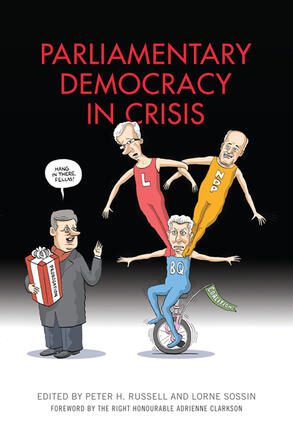
Parliamentary Democracy in Crisis
La description
In November 2008, as the economic decline was being fully realized, Canada’s newly elected minority government, led by Conservative Stephen Harper, presented a highly divisive fiscal update in advance of a proposed budget. Unable to support the motion, the Liberal and New Democratic Parties, with the backing of the Bloc Québécois, formed a coalition in order to seek a no-confidence vote and to form a new government. In response, Conservative cabinet ministers launched a media blitz, informing Canadians that the opposition was mounting a ‘coup d’état. ’ Ultimately Governor General Michaëlle Jean allowed Parliament to be prorogued, the coalition fell apart, and a budget was accepted by the House in January 2009. However, widespread public uncertainty and confusion about the principles of government evident during the crisis revealed a grave lack of understanding about the mechanics and legalities of parliamentary democracy on the part of Canadians. With a foreword by former Governor General Adrienne Clarkson, Parliamentary Democracy in Crisis brings together journalists, political scientists, and leading constitutional experts to analyse the crisis and to discuss the nature of Canada’s democracy. The contributors bring perspectives from both French and English Canada and cover all aspects of the crisis, including the prorogation of Parliament, the role of the governor general, the proposed Liberal-NDP coalition, the challenges of minority parliaments, and the now-evident rifts in the culture of Canadian democracy. Knowledgeable and comprehensive but still highly accessible, Parliamentary Democracy in Crisis provides a reasoned and timely response to Canada’s parliamentary crisis of November 2008.